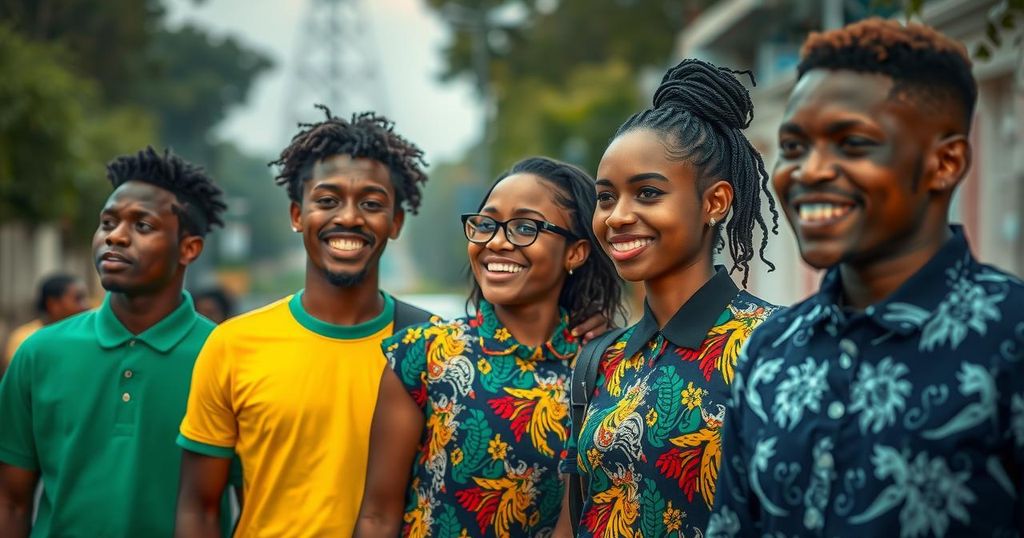Ghana’s Youth Eager for Change as Presidential Election Approaches
Young Ghanaians view the presidential election as an opportunity to rectify the current economic hardships they face. While 12 candidates are contesting, the election boils down to a contest between Vice President Mahamudu Bawumia and former President John Mahama. Amidst concerns about economic stability and electoral credibility, the outcome is pivotal for the future of Ghana’s youth.
As Ghana prepares for its presidential election, young voters like Joseph Antwi express a desire for change amidst a dire economic situation. The frustration towards the ruling government, which many feel has failed to deliver on its promises, has intensified the call for a decisive vote. Despite the emergence of 12 candidates, the contest is primarily viewed as a showdown between Vice President Mahamudu Bawumia of the ruling New Patriotic Party (NPP) and former President John Mahama, leader of the National Democratic Congress (NDC). Both candidates seek to address the pressing issues of economic hardship and unemployment.
In their final campaign rally on December 5, 2024, Bawumia promised continuity and stability to combat economic challenges, while Mahama called for a comprehensive “reset” of the country’s systems, emphasizing the need for improved governance and economic revitalization. The upcoming election highlights the urgency for solutions to rising costs of living and rampant illegal mining activities, affecting the environment and the population’s well-being. Amidst these dynamics, there remain concerns about electoral integrity, with allegations of potential vote-rigging by opposition parties despite the election commission’s assurances of transparency and fairness.
The political landscape ahead of Ghana’s elections showcases significant dissent among the youth, who perceive the presidential vote as a critical opportunity for escaping their current hardships. The nation’s economic woes, characterized by high inflation and a depreciating currency, shape voter sentiments as they prepare to elect a new leader. With young voices eager for change, the voting process offers a chance to influence future governmental policies affecting their livelihoods, especially in light of the country’s historical two-party competition.
In conclusion, Ghana’s forthcoming presidential election serves as a pivotal moment for young voters seeking solutions to pressing economic challenges. With the electorate predominantly focused on issues of governance, fiscal management, and transparency, the candidates’ pledges to address these concerns will be closely scrutinized. As the nation stands at a crossroads, the choices made by 18.7 million registered voters will significantly determine the direction of Ghana’s economic recovery and political integrity.
Original Source: apnews.com




Post Comment